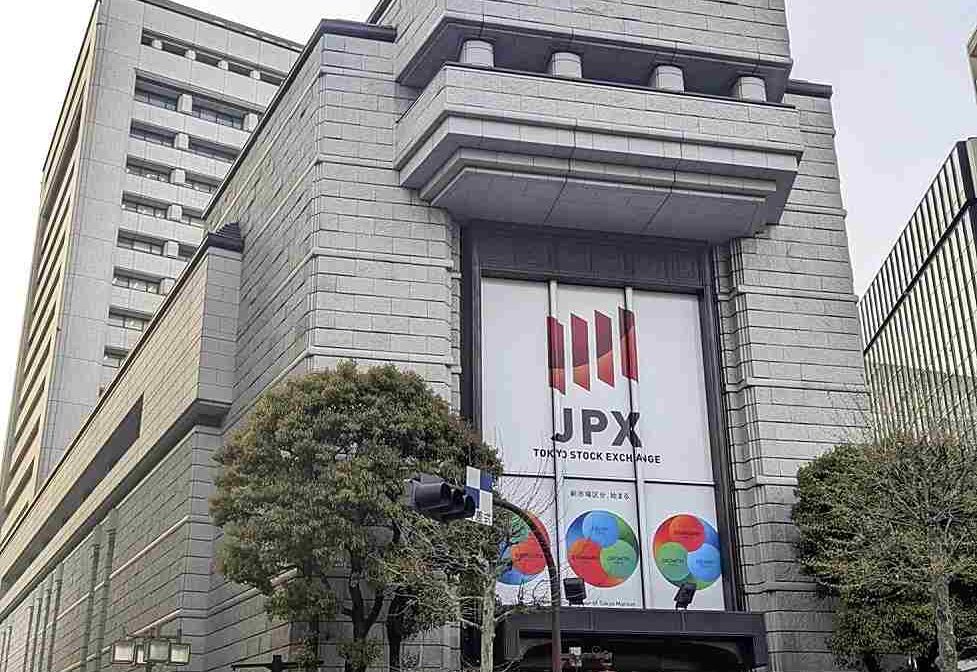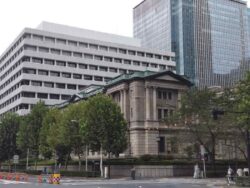
Tokyo Stock Exchange
12:16 JST, July 31, 2024 (updated at 15:00 JST)
TOKYO (Reuters) – Japan’s Nikkei share average rose on Wednesday, helped by banks after the Bank of Japan raised interest rates for the second time since 2007.
The Nikkei was up 0.25% at 38,620.85 as of 0421 GMT, reversing earlier losses. The broader Topix also changed course to trade 0.37% higher.
The central bank raised its key rate target to 0.25% from around zero. Expectations for policy tightening had risen following reports overnight that the BOJ was mulling the move.
Several high-profile Japanese politicians including the prime minister had also batted for a near-term normalization of monetary policy.
The Tokyo Stock Exchange’s banking index climbed 2.7% to be the top performer among the 33 industry groupings. Higher rates would improve lending margins and potentially boost investment income for banks.
A Topix index of value shares rallied 0.8%, while a growth share index sagged 0.2%.
“I had thought that a rate hike was unlikely this time, given … hard data for both income and consumption doesn’t really show a positive cycle between wages and inflation yet,” said Norihiro Yamaguchi, senior Japan economist at Oxford Economics.
“Today’s decision revealed the bank’s strong appetite for hiking rates.”
Stocks of exporters including automakers were overall weaker, after the yen strengthened about 0.8% against the dollar on Tuesday following those reports.
Toyota Motor was among the Nikkei’s worst performers, also pressured by a corrective order from Japan’s transport ministry over violations in vehicle certification procedures. The stock dropped as much as 4.2% and was last down 2.4%.
It was the first corrective order issued to Toyota and comes after the discovery of new irregularities, national broadcaster NHK reported.
Meanwhile, Resona Holdings was the Nikkei’s best performing bank with a 4% jump, while Sumitomo Mitsui Trust Holdings added 3.3%.
The BOJ’s last rate increase, in March, was its first since 2007.
Japanese lenders have attracted larger foreign investment flows than other sectors, as investors see them as top beneficiaries of potential monetary tightening.
Banks lured an estimated 472 billion yen ($3.1 billion) of net stock purchases in the year to July 25, according to J.P. Morgan quantitative strategy team. That’s more than double the flows into the automobiles and components sector, another top performer.
$1 = 152.2400 yen
Top Articles in News Services
-

Survey Shows False Election Info Perceived as True
-

Hong Kong Ex-Publisher Jimmy Lai’s Sentence Raises International Outcry as China Defends It
-

Japan’s Nikkei Stock Average Touches 58,000 as Yen, Jgbs Rally on Election Fallout (UPDATE 1)
-

Japan’s Nikkei Stock Average Falls as US-Iran Tensions Unsettle Investors (UPDATE 1)
-

Trump Names Former Federal Reserve Governor Warsh as the Next Fed Chair, Replacing Powell
JN ACCESS RANKING
-

Producer Behind Pop Group XG Arrested for Cocaine Possession
-

Japan PM Takaichi’s Cabinet Resigns en Masse
-

Man Infected with Measles Reportedly Dined at Restaurant in Tokyo Station
-

Israeli Ambassador to Japan Speaks about Japan’s Role in the Reconstruction of Gaza
-

Videos Plagiarized, Reposted with False Subtitles Claiming ‘Ryukyu Belongs to China’; Anti-China False Information Also Posted in Japan
























